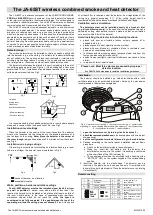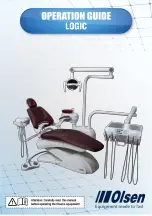
Operating Manual
SAFE HANDLING
Software-Version 2.6
B|BRAUN
Chapter 1
Page 6 of 10
SHARING EXPERTISE
2.6_CA-EN_03
1.3 CONTRAINDICATIONS
The H.E.L.P. apheresis treatment must not be applied
in the case of
- Hemorrhagic diathesis
- Ulcers in the gastrointestinal area
- Haemorrhage
- Coagulation disorder and neoplasm
- Liver diseases
- Severe heart failure and valvular defect
- Condition following apoplexia
- Dementia
- During pregnancy and lactation
- Children and infants in whose case the
extracorporeal volume is a limiting factor.
The doctor in charge of the treatment is responsible
for choosing the suitable therapy, based on medical
and analytical findings and the general health and
condition of the patient.
1.4 SIDE EFFECTS
Occasionally, the occurrence of angina pectoris
has been observed.
In rare cases, there are
- Heart rhythm irregularities and laboured
breathing caused by the underlying disease
- Bradycardia
- Vasovagal syncopes
- Circulatory collapse
- Hypotonia
- Nausea/sickness
- Dizziness
- Headache
- Tiredness/exhaustion
- Tension and swelling of arms, hands and face
- Burning eyes
- Prolonged bleeding time
- Dyspnea
- Hypertonia
- Feeling hot, sweating
- Hypersensitivity reactions against the hydrophilic
components of the tubing and filter material are
generally rare in extracorporeal treatment
procedures.
- flushing
- discomfort in treatment extremity
- hypotension
- decrease in ferritin levels










































